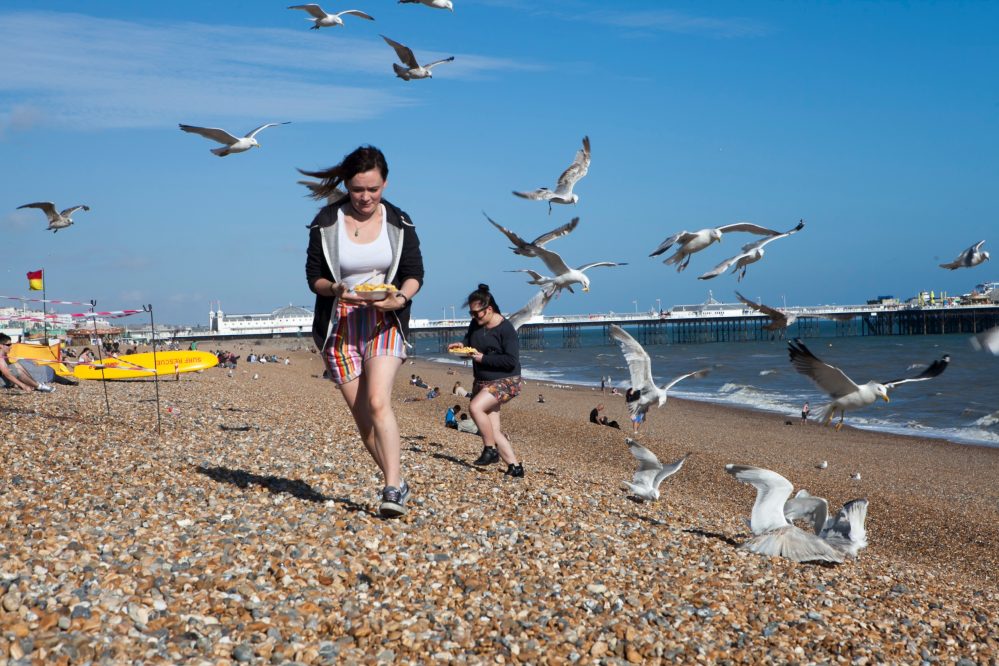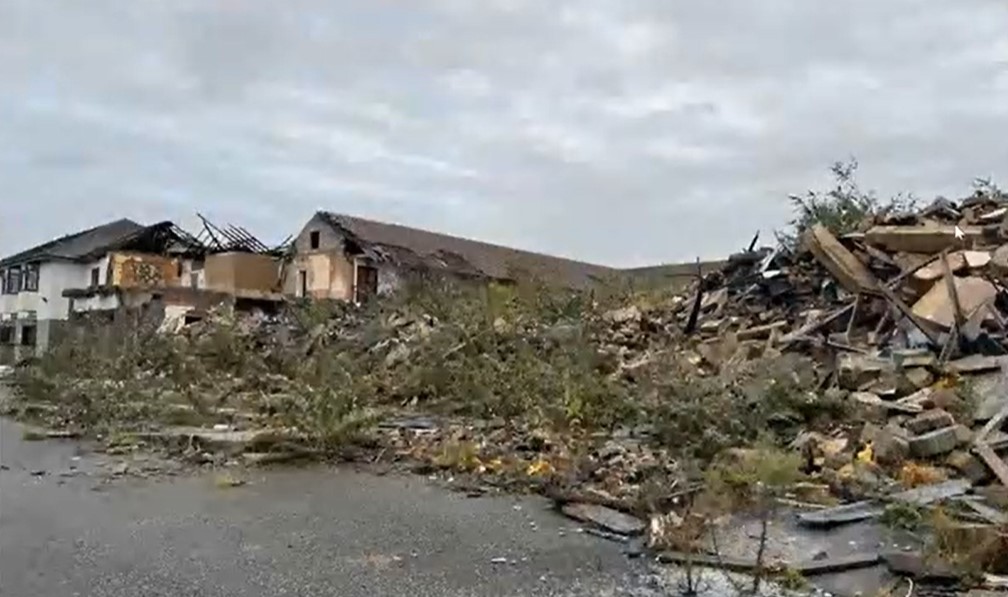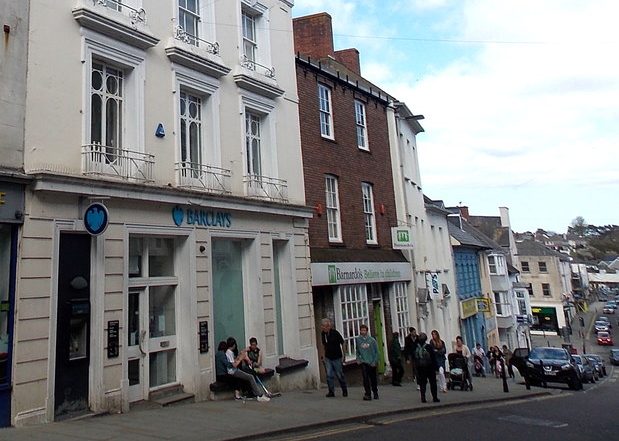Community
RSPCA spotlight on animal welfare

Snapshot: The Animal Welfare and Food Indicators reports on some of the most important farm animal welfare issues
THE MAJORITY of consumers think that the welfare standards of animals reared for food is important in their purchasing decisions, a new report from RSPCA Cymru has highlighted. RSPCA Cymru has brought together for the first time a collection of indicators that provide an insight into the welfare issues surrounding animals that are reared for food in Wales.
The Animal Welfare and Food Indicators report provides a snapshot of some of the most important farm animal welfare issues, including food labelling, non-stun slaughter, public sector procurement and live transport. The report intends not only to benchmark and demonstrate ‘where we are’ with animal welfare in food production in Wales, but also makes a series of recommendations with the aim of improving the lives of farm animals in Wales. In recent years, it is clear there has been growing concern in society regarding the treatment of animals in our food chain.
New polling from RSPCA Cymru found that a massive 80 percent of Welsh adults said the welfare standards of the animals reared is important in their purchasing decisions. Of those polled, 74% recognised at least one of the four main labelling schemes in Wales which self-define as providing higher welfare food, including the RSPCA’s Freedom Food scheme. RSPCA Cymru Head of External Affairs, Claire Lawson, said: “Increasingly, consumers want detailed information concerning how their food was produced.
Many people in Wales consciously seek to tailor their shopping habits with the aim of buying higher welfare products. Better labelling, however, is vital to ensure people have the information they need to make an informed choice, and can purchase food that meets higher welfare standards. RSPCA Cymru believes ‘Method of Production’ labelling should be introduced for all meat and dairy products.
This would place an emphasis on retailers to stock produce desired by their consumers.” The report calls for an end to nonstun slaughter and more than 2,300 people have already signed the charity’s petition in Wales, backed by the British Veterinary Association, urging an end to it. Current law in Wales requires animals to be stunned before slaughter, but exemptions exist for certain communities.
Expert opinion outlines how non-stun slaughter compromises animal welfare, and RSPCA Cymru believes the Welsh Government should therefore end existing exemptions. The charity also believes that the Welsh Government should introduce a requirement for all abattoirs in Wales to implement CCTV systems, to provide assurance and protect animals and staff.
As of 2011, there were 23 abattoirs operating in Wales. According to the Food Standards Agency, only 17 percent of these had CCTV in the stunning or bleeding areas. According to RSPCA Cymru’s poll, a massive 82 percent of the public in Wales support the introduction of CCTV in all slaughterhouses, and 80 percent of those polled support an end to non-stun slaughter, with 59% strongly in favour of this move.
RSPCA Cymru also recommends that the collective aim for the Welsh Government, producers, campaigners and the public should be to keep all live transportation to a minimum and, indeed, to cease all long-distance transport of live animals in favour of a ‘carcase-only’ trade. The report also explores the issue of public sector procurement and recommends that the Welsh Government should seek to mirror the National Assembly for Wales, which in September 2010 switched its procurement of egg and salmon products wholly to Freedom Food approved sources.
Rebecca Evans, Deputy Minister for Farming and Food, said: “I welcome the publication of this new report from RSPCA Cymru, and am grateful for the work that they do alongside our farming communities, local authorities, and others, in the interests of farm animal welfare. The Animal Welfare and Food Indicators report clearly demonstrates that the people of Wales attach great importance to animal welfare standards when purchasing food.
In July, I was delighted to launch the Wales Animal Health and Welfare Framework which sets out how the Welsh Government, the farming industry, and others, must work to deliver on our vision of continuing and lasting improvements in standards of animal health and welfare for kept animals, while also helping to protect public health and making a contribution to the economy and the environment. I look forward to continuing to work with the RSPCA and others in the interests of animal welfare in food production.”
Community
Be wary of gulls as breeding season approaches

AS families across Wales head to the seaside for the bank holiday weekend, a national trade body is urging people to be wary of gulls as their egg-laying season gets underway.
During the breeding season, gulls have been known to launch attacks on people, says British Pest Control Association (BPCA).
After mating and nest-building in February and March, many gulls will be protecting nests and eggs towards the end of April and into May.
However, BPCA is also reminding people that avoiding gulls wherever possible is always the best course of action as interfering with wild birds, their eggs or nests could lead to prosecution.
The Wildlife and Countryside Act 1981 states that all wild birds and their eggs are protected, but people with the appropriate knowledge on licences, such as BPCA members, can take steps if the birds are causing a public health and safety concern.
Natalie Bungay, Technical Manager at BPCA, said: “We love British birds. All wild birds and their eggs are rightfully protected by law in the UK, so it is absolutely vital that holidaymakers, householders or business owners don’t interfere with them.
“However, gulls can pose a serious safety concern. They have been known to attack people unexpectedly, which can be a frightening experience, especially if they draw blood, which can occasionally happen.
“We often think of gulls as a coastal problem – which they can be in seaside towns where people have fed them regularly. But for some time now they have also been an increasing problem in towns and cities away from the coast too.”
Gulls can live for 25 to 30 years and many weigh around 1kg, with wingspans of around one metre.
Seaside visitors can try to avoid attracting gulls by ensuring picnic foods or chippy take-aways are kept covered or eaten out of sight of gulls where possible.
Nesting gulls can cause problems for homes and businesses both on the coast and inland, as well as at supermarkets and hospitals, as these buildings can offer ideal nesting sites which are difficult to access and proof.
Nests can clog gutters or chimneys, which may cause water overflows, or potential issues with carbon monoxide, as well as bringing a risk of secondary infestation from bird mites, ticks, fleas and beetles.
Properties are also at risk from bird droppings, which can carry some harmful bacteria and diseases, as well as even cause slips, trips and falls where they build up.
Natalie added: “Gulls are also protected by the law, so it really is important to seek professional help.
“BPCA members are trained in bird control and will be able to offer a management plan that will alleviate the issue.
“There are a variety of bird-proofing measures available, all of which will deter birds without causing them harm, and as gulls are large and heavy, any proofing measures need to be suitable for the job, very heavy duty and correctly installed by a professional.
“Bird prevention, proofing and control is a highly specialised area requiring specific equipment and techniques. Pest professionals are required to try all reasonably practicable non-lethal bird control methods before they consider lethal control.
“Always consult a BPCA member before considering any form of bird management. You could be prosecuted if you illegally interfere with a bird, its nest or eggs.”
BPCA members are trained, experienced professionals with access to a range of specialist products not available to the public, as well as being regularly assessed to the British Standard in Pest Management BS EN 16636.
BPCA members are also endorsed by the Government via the TrustMark quality scheme.
To find a professional pest controller visit bpca.org.uk/find
Community
Social housing plans for Cleddau Bridge Hotel site backed

A SCHEME to build 38 affordable and social housing units on the site of a fire-ravaged former Pembrokeshire hotel has been backed by senior Pembrokeshire councillors.
Pembrokeshire County Council’s Cabinet, meeting on April 22, supported a contract with developer Castell Group Ltd for the mix of affordable homes and social housing units at the Cleddau Bridge Hotel site, Pembroke Dock.
Members, in a report presented by Cabinet Member for Planning & Housing Delivery Cllr Jon Harvey, heard Castell had approached the council’s housing service to determine whether there is an interest in working with them to bring forward the development as a social/affordable housing site.
Castell Construction Ltd specialises in the construction of affordable / social housing, typically for registered social landlords across south Wales, and hopes to build 12 one-bedroom flats, 15 two-bed houses, five three-bed, two four-bed, and four two-bed bungalows.
The development package would be part-funded from the housing revenue account, the remainder from the Social Housing Grant and/or second homes premium for affordable housing if it becomes available for the Housing Service to use in this manner.
Cllr Harvey – who moved approval – said the scheme was expected to provide £230,000 a year in rentals income, describing it as “an excellent opportunity to work with a proven developer for extra social housing in an area of proven need.”
Deputy Leader Cllr Paul Miller said he was supportive of the scheme, as was local member Cllr Joshua Beynon, saying: “It’s a bit of an eyesore at the moment, if we can bring this site back into meaningful use, and in an area where there is a need, I’m all in support of this.”
Members backed senior officers be delegated powers to enter into the works contract, and to have powers to proceed with the land acquisition.
If a subsequent planning permission is secured for the site, the homes could be built by autumn 2026.
In a prime location at one of the entrances to Pembroke Dock, the former Cleddau Bridge Hotel has been derelict since a fire in March 2019, which brought emergency services from as far afield as Ammanford, Aberystwyth and Swansea.
Community
County Hall to offer space for community banking

A CALL for Pembrokeshire County Council to potentially change its banking arrangement with Barclays, after it closed its Haverfordwest branch has been turned down, but County Hall is to offer space for community banking.
Barclays Bank, on the town’s High Street, is to close on May 10.
The council has had a banking services contract with Barclays since 2013.
Councillor Huw Murphy, in a notice of motion heard by Pembrokeshire County Council’s Cabinet meeting of April 22, asked the council to review its banking arrangements with Barclays following the announced closure.
e said the loss of a branch “not only impacts upon town centres and businesses but also disproportionately impacts the elderly who are less likely to embrace on-line banking options”.
A report for Cabinet members said, in terms of the impact on Pembrokeshire residents, Barclays has said that it is “not leaving Haverfordwest and [will] continue to provide face-to-face support for those who need it” via community locations.
Two options were presented to Cabinet: to retender the banking services contract, and, the favoured, to work with Barclays to ensure a community location is set up in Haverfordwest.
Members heard the costs associated with moving to a new banking service provider could be in excess of £50,000.
For the second, favoured option, members heard Barclays was in discussions with the council about a location for potential community banking.
Cabinet Member for Corporate Finance Cllr Alec Cormack, after outlining the risks in the report for members, and moving the notice be not adopted, said he had “considerable sympathy” with Cllr Murphy’s notice.
He told councillors there was a glimmer of light for banking arrangements in the county, with an agreement now signed for two ground floor rooms at County Hall, Haverfordwest, to be used for community banking.
From April 25, the rooms will be available on Wednesdays, Thursdays, and Fridays, members heard.
Cabinet Member for Planning & Housing Delivery Cllr Jon Harvey also said he had “a lot of sympathy” for the motion, adding: “It’s excellent news a deal has been struck to occupy the ground floor rooms three days a week; hopefully this will mitigate, to a certain amount, the closure.
“If we can work with the respective banks to get a community-type approach let’s move forward.”
-

 News5 days ago
News5 days agoPolice issue update on the search for Luke, missing from Pembroke Dock
-

 News7 hours ago
News7 hours agoPolice and air ambulances at ‘serious incident’ at West Wales school
-

 Sport6 days ago
Sport6 days agoHerbrandston Clinch Promotion to Division One
-

 News4 days ago
News4 days ago20mph U-turn: Some roads will return to 30mph following public outcry
-

 Community4 days ago
Community4 days agoMiracle pup finds her forever home after heart-wrenching journey
-

 Community1 day ago
Community1 day agoCounty Hall to offer space for community banking
-

 Crime2 days ago
Crime2 days agoBrian Davis: Wanted on suspicion of commercial burglary
-

 News7 days ago
News7 days agoFirst step towards council tax and business rate reform




























